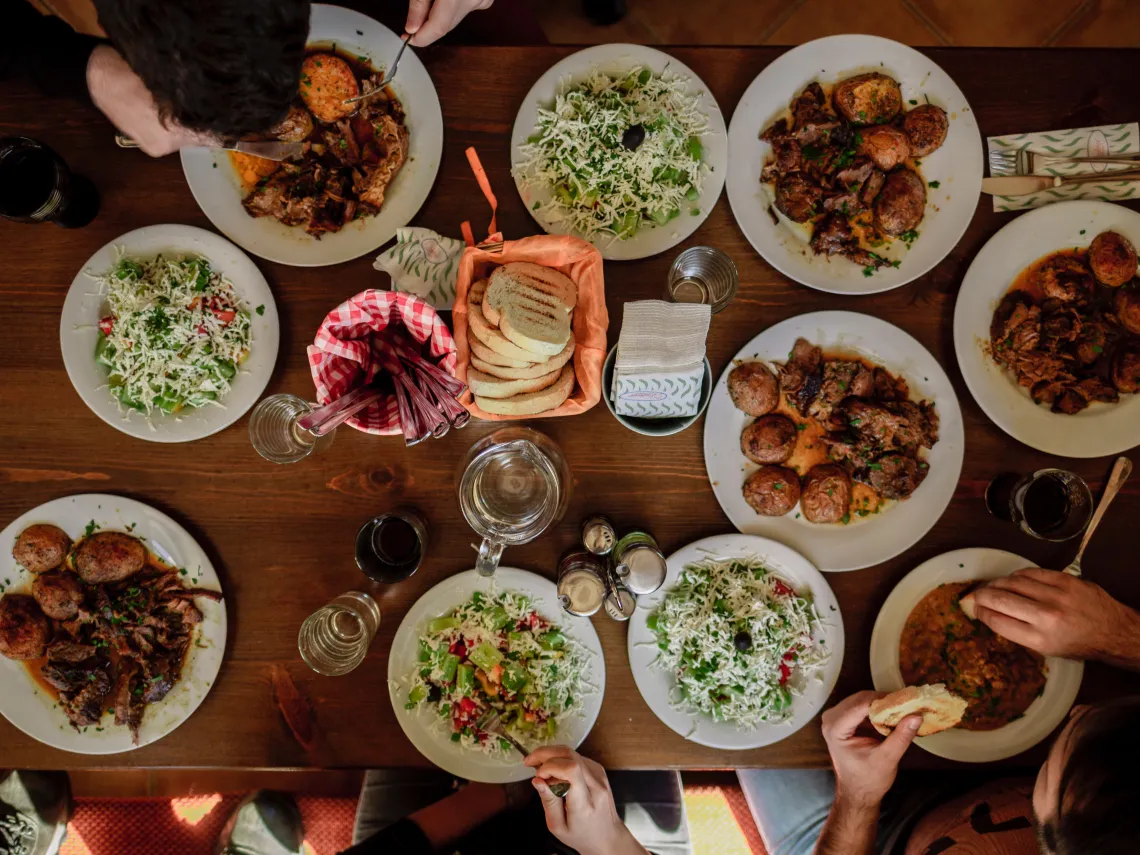Faculty and Students Take Conversation from the Classroom to the Dining Room

Photo via Unsplash
What happens when you trade Torts for tortes?
Late in the fall semester, University of Arizona Law students left campus and scattered across Tucson to share meals with their professors in a weeklong community-building initiative dubbed “Food for Thought.” Small groups of students signed up to dine out with a faculty member, with the college picking up the bill. Overall, 23 professors hosted 64 meals with 206 students.
“It allows students to get to know us in a more casual environment and engage on a level beyond just talking about the material covered in class,” says Associate Professor of Law Albertina Antognini who dined with students at Anita Street Market, Time Market, and Zemam's.
Antognini chatted with students about a range of subjects, including hometowns, law school experiences, career trajectories, teaching methods and life in Tucson.
“It's a nice way to check in and to interact,” says Antognini. “It's also a great way to explore Tucson—we had meals at restaurants across the city.”
Second-year student Nathaniel Goodman says Food for Thought allowed him to take a break from the academic rigor of law school to get to know students and professors on a more personal level.
“I enjoyed it because it allows students to really get in the minds of their professors, being able to ask them questions they wouldn't normally be able to ask in a classroom setting,” says Goodman. “It's also great to hear about your professor's experiences—their journey through the legal profession, how they came to where they are today, what really sparks their interests.”
1L Maryam Azimi met with her current professors but also signed up to have meals with professors whose courses she is taking in the future.
“They were very kind and were interested in getting to know us, about our families and what we did before coming to law school,” says Azimi. “You know about professors while they are teaching, but you don’t know their character outside of the classroom. It was very interesting getting to know them.”
Associate Professor of Legal Writing Diana Simon says dining with students enhanced her ability to be an effective mentor.
“I have been doing some research into student mentoring, and the more contact you can have with students outside of the classroom, the better you can mentor them,” says Simon. “They can have a stronger relationship with the school and the faculty and feel much more a part of the community.”
Simon kept her meals with students informal and relaxed to help them feel more comfortable. Topics of conversation included what drew her to law, what areas of law the students are interested in, and Tucson activities.
“With these small groups, I can really focus on each student individually, which I like,” says Simon.
Ultimately, sharing a meal is about being included and known—having a seat at the table. That’s not always easy in an intense environment like law school, but efforts like Food for Thought can help.
